The UK’s love of cheese knows no bounds. Tracy West looks at why we are so attached to it and finds out what’s next for the humble block
Such is the nation’s love of cheese that last month, for Valentine’s Day, the Long Clawson Dairy was offering its customers cheese sweets. Made from premium white stilton, they were laced with natural aphrodisiacs such as oysters and combined with popping candy. The price for these ‘delicacies’? A mere £32 for four. Apparently, they sold like hot cakes.
However, for most consumers cheese is not a delicacy, but an everyday line used predominantly for sandwiches and on toast. And, according to Mintel’s latest cheese report, Cheddar is still our favourite by far, accounting for more than 50% of value sales.
Dairy Crest’s Cathedral City is the UK’s favourite Cheddar brand. Adam Mehegan, shopper marketing manager at the company, says: “According to Nielsen data, brands now equate to 46% of value sales in the category and this is expected to grow as consumer loyalty builds.”
Increasing usage is a key strategy for Dairy Crest to grow the category and encourage shoppers to trade up. Cathedral City marketing manager Jackie Wilson comments: “Sliced Cheddar is a fast-growing segment for cheese, driven by the consumer’s desire for quick and convenient meal solutions. We have just launched Cathedral City mature thick sliced Cheddar block as our research revealed a demand for a thicker sliced Cheddar that is more like the slices you would prepare yourself at home. It is important to match consumer needs with innovative formats.”
She recommends that retailers think about what their customers might need. “Large family packs (over 500g) are not appropriate within convenience as they can be expensive. Retailers should focus on small- to medium-sized packs that will encourage purchase, but will also ensure that the most is made from the sale.”
Retailer’s view
Dean Holborn, Holbrone, Redhill, Surrey
“We stock a good range of cheese in both our stores. It all comes from Camelot Chilled Foods (CCF) and they really look after the section for us.
“It’s a comprehensive range including vegetarian, Irish mild, farmhouse, New Zealand mature and red Leicester - in 200g and 320g. We also have brie and camembert, Port Salut, haloumi and mozzarella. It’s all pre-packed. We stock everyday cheeses, too, such as Cathedral City, Philadelphia and Dairylea.
“We’ve definitely got more cheese that you’d expect from a typical c-store.
“We get two chilled deliveries a week from CCF and, best of all, it’s all sale or return. However, we don’t return a lot because they monitor what we sell and keep wastage to a minimum. Without them, I wouldn’t stock a range this big because I’d be scared about wastage.
“Customers are definitely becoming more adventurous with cheese, looking for particular types for recipes, for example.”
Mehegan says that in order to engage the cheese consumer, convenience retailers should focus on the breadth of their offering, not the depth of the range. “Retailers should maximise the different types of cheese available by avoiding duplication to ensure a good breadth of range. For example, stock only one pack size per cheese type, as well as just one brand per type. A wider range of cheese will allow retailers to meet a higher number of shopping missions and usage occasions in the home.”
Hannah Jenkins, Pilgrims Choice brand marketing controller at Adams Foods, says her company’s research has found that many consumers don’t understand the strength of Cheddars and the flavours they offer. The response to this is a relaunch with packaging over-printed with descriptions of each variety of cheese. The mature Cheddar and lighter mature are described as “superbly smooth and rich”, extra-mature Cheddar and lighter extra-mature are dubbed “wonderfully strong and punchy”, while the farmhouse vintage Cheddar is “distinctly crumbly and tangy”.
Says Jenkins: “We want to help people make the correct cheese choices, and we believe these tasting notes will ensure that people buy the right cheese for their needs while adding long-overdue clarity to the category.”
Health is a key trend in the cheese category with consumers looking for healthier, lower-fat options. Dairy Crest has responded with the launch of lighter variants of Cathedral City.
At Adams Foods, Jenkins comments: “Lighter cheeses are rapidly becoming a force to be reckoned with within the cheese category and should not be ignored. Now worth £43.8m, the lighter variant category is growing at an annual rate of 28.7% in value and 26.5% in volume (Nielsen) so we strongly advise convenience stores to stock lighter cheeses in their product mix.”
The company offers Pilgrims Choice lighter mature and Pilgrims Choice lighter extra mature. Jenkins says both cheeses give consumers an alternative with 30% less fat but no compromise on taste.
That last bit about taste is extremely important because research company Mintel found that 44% of consumers found lower fat cheeses to be “bland”.
Rosie Tapp, group product manager at Bel UK, says her company’s range of light cheeses demonstrates the importance of developing products that meet consumers’ demands. “The Laughing Cow, Mini Babybel, Leerdammer and Boursin all have light variants available. To keep up with consumer demands it’s becoming increasingly important for retailers to stock healthier snacking alternatives for those who value both nutritional content and ‘food on the go’.”
She advises retailers to display dairy snacks next to soft drinks and confectionery for best sales results. “Ensure customers can find the snacking fixture easily by maximising shelf-ready packaging to create great stand-out and dual site brands on the cheese and sandwich fixtures for increased visibility and sales.”
The low-down
Daniel Hopkirk, marketing manager for dairy at Kerry Foods, says that despite impressive growth, low-fat cheese remains under-developed. “In Holland, for example, the number one cheese brand is a low-fat variety, Milner, while low fat and healthier varieties account for 80% of milk sales and 50% of yogurt sales in the UK respectively, indicating significant scope for growth.”
Kerry’s LowLow was launched onto the UK market in 2009 to capitalise on this opportunity. “We have been overwhelmed by the consumer response to date,” says Hopkirk. “Over the past year, the brand has reached 12% market penetration and accounts for 50% of the growth of the healthier Cheddar market in the UK (Nielsen).”
Last year five new products were added to the LowLow range, including mature Cheddar spreads and toastie slices. Says Hopkirk: “These products have thrived, with the spreads and slices alone adding £2.4m to the brand in less than 12 months (Nielsen).”
Meanwhile, the spreads market has achieved double-digit percentage growth over the past 12 months (Nielsen), making it the fastest growing sector in the processed cheese category. Its total value is now £98.2m.
The soft white cheese market also performed strongly in 2011. The category rose in value to nearly £136.2m - an increase of 7.3%.
The number-one soft white cheese is Philadelphia, with a 72.1% market share. The brand outperformed the category as a whole last year, with growth of 10.7%, while the value of Philly flavours rose 37.3% to more than £28m (Nielsen).
And those flavours keep on coming as Kraft’s ownership of Cadbury is being used to great effect with the launch of the Philadelphia with Cadbury chilled chocolate spread. It may sound like it’s laden with calories and fat, but Kraft says it contains half the fat and less sugar than many other spreads, with 86 calories per serving.
Kraft Foods UK marketing manager Bruce Newman says: “We’re confident that customers will love Philadelphia with Cadbury as we unite two of their favourite brands. In our consumer testing, people saw the product as a perfect spread for toast, bagels, biscuits, and even as a dip for fruit.”
It’s cheese, but not quite as we know it. •








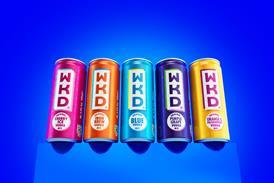


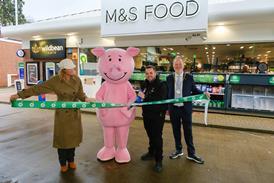
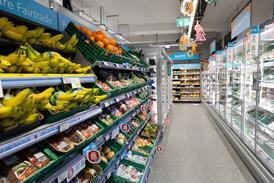








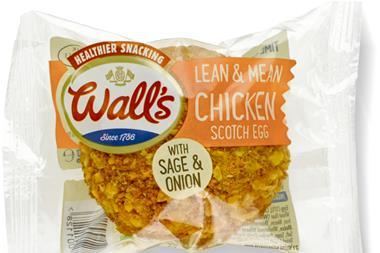
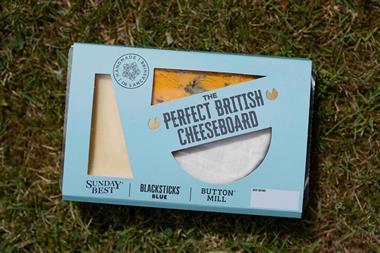
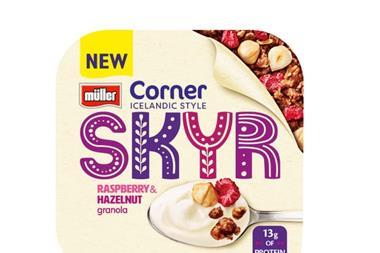
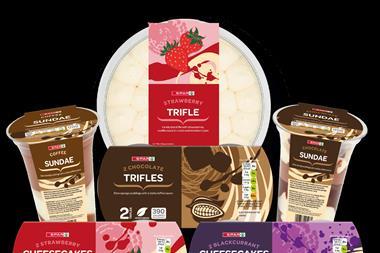

No comments yet